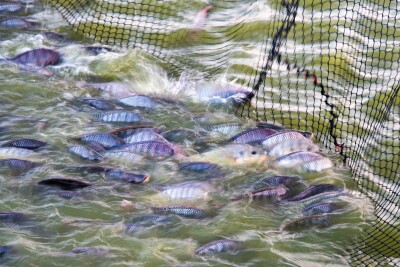Safety is the first line of defense
From U.S. Coast Guard reports
Cold temperatures with 3-foot seas and 35-knot winds led a skipper to anchor his 86-foot shrimper and three-man crew about a mile off of southwest Louisiana one mid-December day.
The next day a similar shrimper arrived at around 5 p.m. so the crews could watch Sunday night football together. The second boat maneuvered into position for a stern-to-stern mooring.
They used a mooring line with 15 to 20 feet of slack. The line let the boats move independently. It was tripled-up to a set of bitts on one boat's starboard stern and the other's port stern.
They also ran an overhead grab line between ladders that were part of each vessel's standing aft deck rigging. The overhead line helped the anchored boat's crew members steady themselves while crossing to the second boat for the game.
The anchored shrimper's skipper and a crewman headed to the aft deck of the other boat between 9 and 10 p.m. The temperature was 45 degrees with wind out of the north at about 20 knots.
The crewman returned to the galley, and the skipper chose to stay on deck a little longer.
When the crewman went back outside 15 to 20 minutes later, he didn't find the skipper. The crewman assumed the skipper had returned to his boat via the grab line, as he'd done many times.
Upon returning to the anchored shrimper after the game, a crewman went to check on his skipper but didn't find him in his cabin. Thorough searches on both boats came up empty.
Both crews began searching the water and calling for the skipper. One of the anchored vessel's crewmen contacted another fishing boat in the area and told them his skipper had apparently fallen overboard. Because neither crew was confident of their English, they asked the nearby fishing vessel to contact the Coast Guard. Within 30 minutes, the Coast Guard launched a helicopter.
A plane was also launched and an 87-foot patrol boat was diverted to the area. Despite an extensive search that included many nearby fishing vessels, the missing skipper wasn't found.
Lessons learned
Neither boat took steps to lessen the dangers of the mooring line/grab line arrangement. Neither required a crew member to be on watch during transfers. The crews did not practice man-overboard drills before or during the trip.
Make it a practice to wear a PFD, especially when climbing near the rail or on equipment that hangs over the side, and take time to hold MOB drills. Making safe practices standard practice will help you fish safe.
This article is based on U.S. Coast Guard reporting and is intended to bring safety issues to the attention of our readers. It is not intended to judge or reach conclusions regarding the ability or capacity of any person, living or dead, or any boat or piece of equipment.






